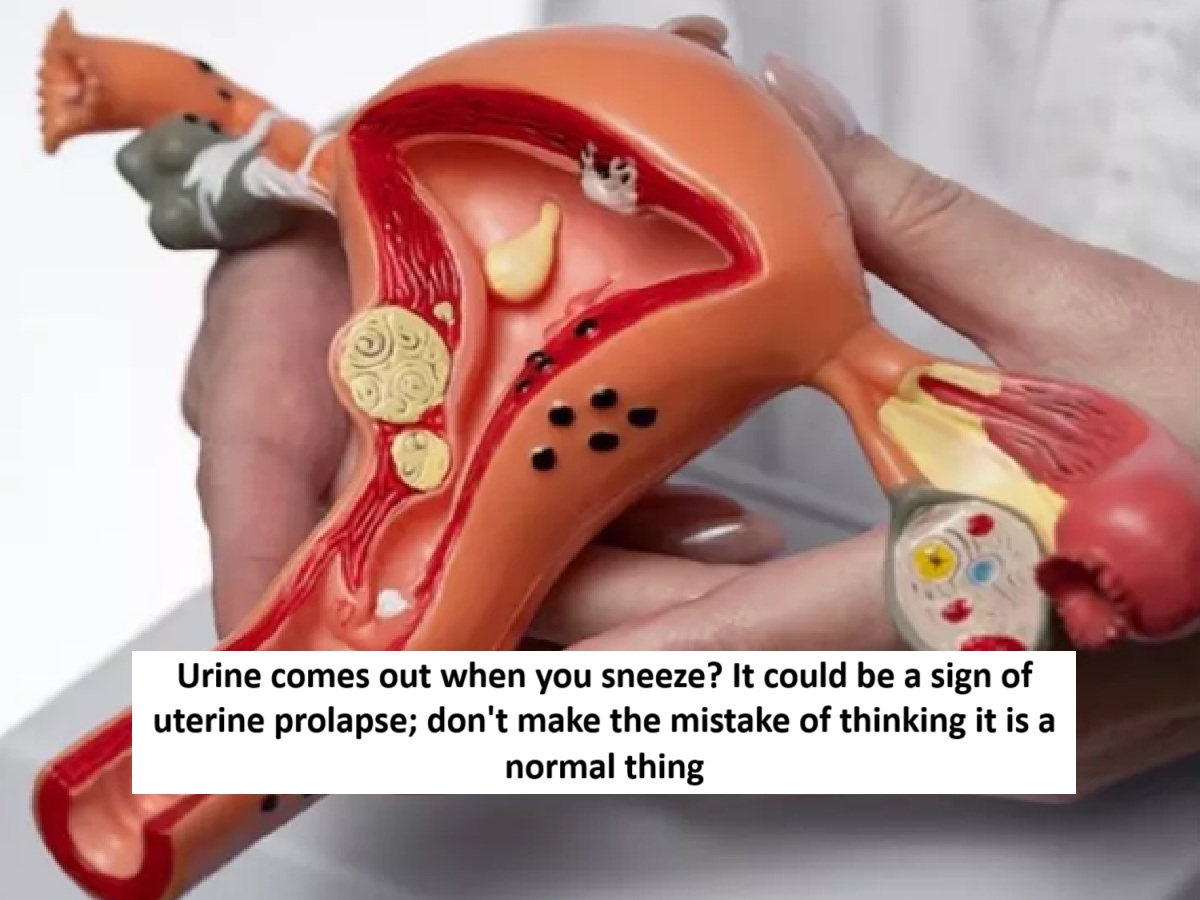
News Topical, Digital Desk : Many health related problems arise with increasing age. Many changes are seen in the body of women after menopause. One of them is Uterine Prolapse. This is called slipping of the uterus. The uterus is called uterus. It starts moving forward with age. Usually this problem is seen when the ligaments become weak.
This problem occurs due to many reasons. Usually its symptoms appear normal which women ignore. But it can cause big problems for you. It is said that if even a little carelessness is done, then the uterus can come out of the vagina. Our article today is also on this topic. We will tell you what is Uterine Prolapse. What are its symptoms and what are the reasons for it. Let's know in detail -
What is Uterine Prolapse?
According to the Cleveland Clinic, as women grow older, some changes can occur in their body. Uterine Prolapse is one such common disease, which is usually seen in old age or sometimes after normal delivery . This happens when the muscles and ligaments supporting the uterus become weak. When they become weak, the uterus starts sliding down from its place. Sometimes it even comes out of the vagina.
What are the stages of prolapse?
- Stage 1: The uterus slides slightly into the upper part of the vagina.
- Stage 2: In this condition the uterus reaches the lower part of the vagina.
- Stage 3: Some part of the uterus becomes visible outside the vagina.
- Stage 4: The entire uterus comes out of the vagina.
Which women get uterine prolapse?
- Those who have had one or more normal deliveries.
- Those who are in the state of menopause .
- Someone in the family may have had this disease.
- Those who have undergone pelvic surgery.
Why does the risk of this disease increase?
Let us tell you that during menopause, there is a decrease in the hormone called estrogen in the body. Due to this the muscles start weakening. This is the reason why the risk of uterine prolapse increases.
Know the symptoms too
- Feeling of heaviness or pressure in the lower abdomen or vagina.
- Pain in the waist or stomach.
- Pain while having sexual intercourse.
- A piece of flesh coming out of the vagina.
- Difficulty inserting a tampon into the vagina.
- Constipation problem.
- Frequent or urgent urination.
- Difficulty in controlling urine.
- Leakage of urine while coughing or sneezing.
- These symptoms may worsen when you stand for a long time, walk, cough or sneeze.
What are the reasons?
- Weakening of muscles after menopause.
- Becoming pregnant repeatedly.
- obesity.
- Persistent cough.
- Repeatedly lifting heavy items.
--Advertisement--

 Share
Share



